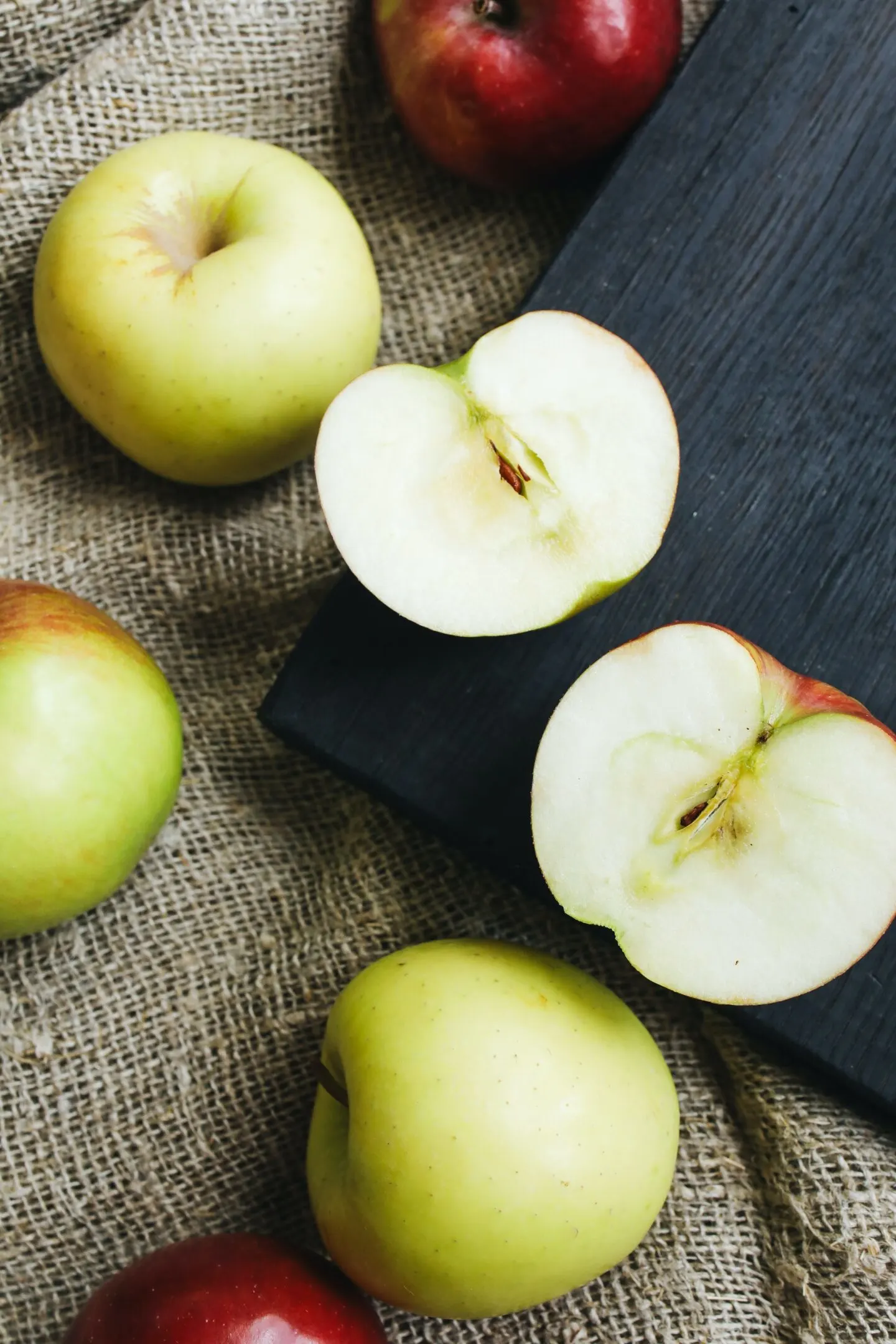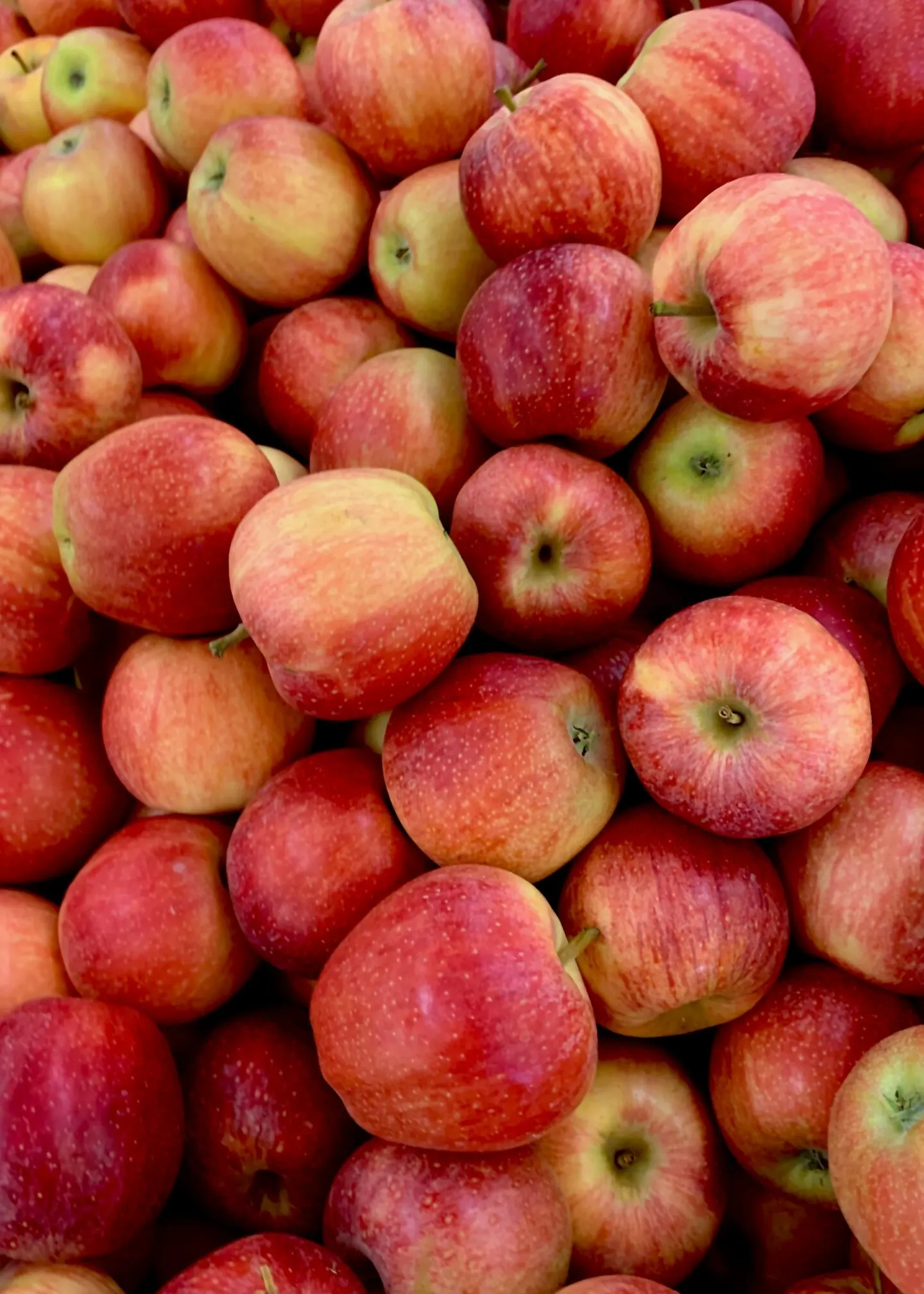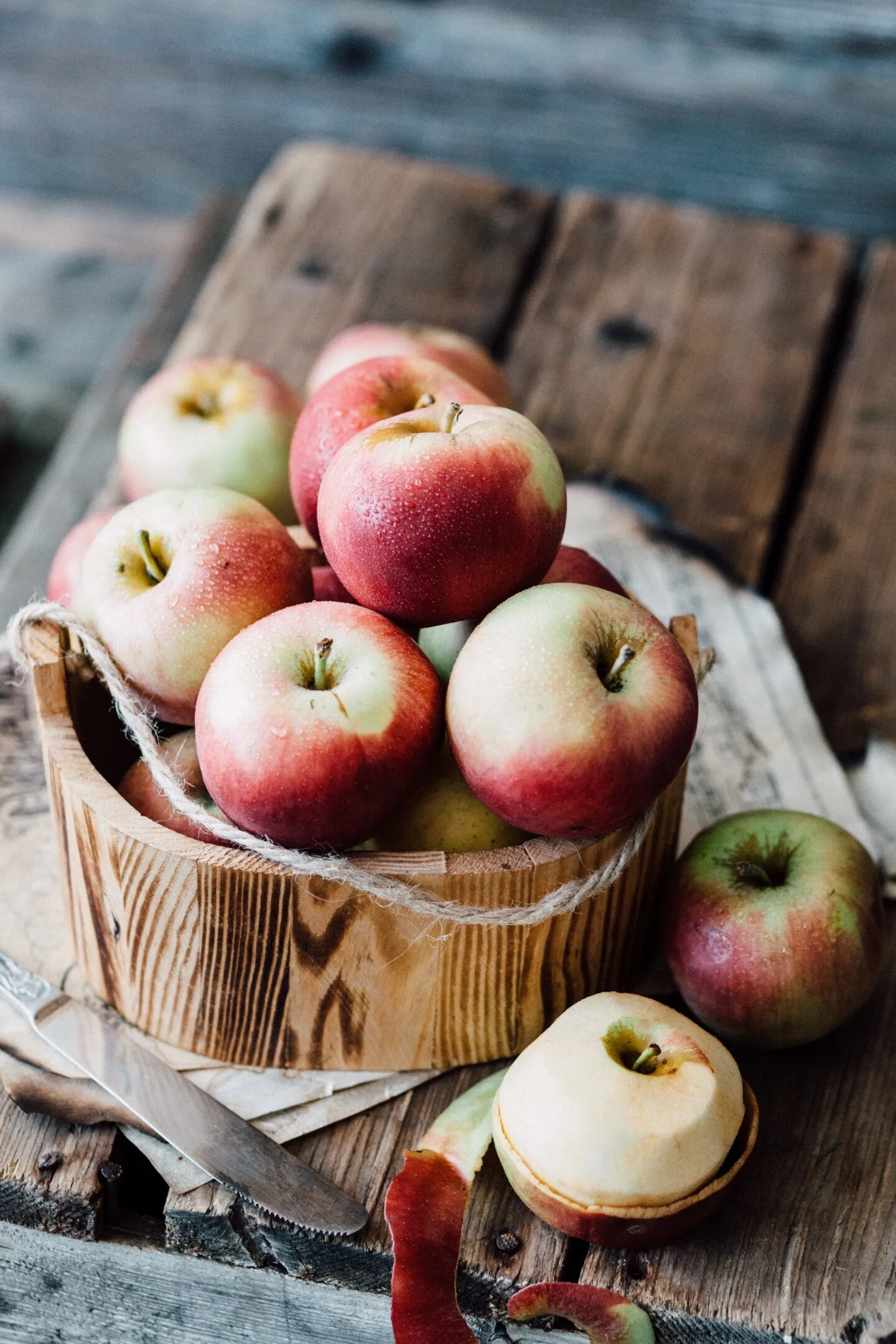Good news for all those parents wondering, “can babies eat apples?” Thankfully, apples can be introduced as soon as your baby is ready to start eating solids, and there are plenty of fun ways to serve them. Apples are an excellent first food choice for those parents who are looking to try baby-led weaning, although there are certainly a few things worth knowing before you get started.

Apples are a great food choice for babies – here’s what you need to know.
The answer is “yes” to the question, “can babies eat apples?”, however as with all things baby-related, there are a few things that you may wish to know before you start serving them to your child. Apples can pose choking hazards for young babies, therefore it’s best to look at the following points to ensure that you find the best way to serve apples to your baby, based on their age and confidence with eating solids.
- The Health Benefits Of Eating Apples
- How To Serve Apples To 6+ Month Babies
- How To Serve Apples To 9+ Month Babies
- How To Serve Apples To 12+ Month Babies
- How To Serve Apples To 18+ Month Babies
Let’s take a look at each point in turn.

The Health Benefits Of Eating Apples
Can babies eat apples and other fresh fruit? Yes, of course! In fact, apples make for a seriously nutritious and tasty snack or meal that can help your baby to thrive. The old adage, “an apple a day keeps the doctor away” has some merit behind it as apples offer a lot of natural fibre, and contain vitamin C, vitamin B, and plenty of antioxidants. The nutritional makeup of apples varies from variety to variety, for example, red apples contain an antioxidant called anthocyanins, which has been shown to potentially support cardiovascular health, as well as gut health.
How To Serve Apples To 6+ Month Babies
One of the most frequently asked questions is “when can babies eat apples?”. The good news is that babies can start to enjoy fruits such as apples from around 6 months of age. In order to prepare the apples for children that are 6 months old, they will need to be softened slightly. To do this, cut large wedges of apple and steam them until they become soft and your baby is able to pick them up and feed themself. Alternatively, you could use fresh apples to make your own unsweetened applesauce that you can either spoon-feed your baby, or let them explore with their hands.

How To Serve Apples To 9+ Month Babies
As your baby gets a little older and more confident with pincer gripping their food, you can start to serve little piles of grated apples alongside the steamed wedges and applesauce. Make sure to keep a close eye on your baby whilst they explore this new texture and keep an eye out for any choking.
How To Serve Apples To 12+ Month Babies
By 12 months of age, your baby will likely have a few more teeth and be more tolerant of various flavours and textures. At this stage, you can still offer your baby unsweetened applesauce as an accompaniment to other foods, such as yoghurt. Additionally, you could start to offer thinner slices of steamed apple for your baby to feed themselves, and even start them on thin slices of raw apple. Don’t forget to keep a close eye on your baby when eating apples to ensure they do not choke.

How To Serve Apples To 18+ Month Babies
Now that your baby has mastered feeding themselves and experienced many new flavours and textures, you can begin to offer slightly thicker slices of raw apple. However, although it may seem like your baby is all grown up, you should resist the urge to offer large raw apple slices until their 4th birthday, as they are still considered major choking hazards.
Can My Baby Be Allergic To Apples?
Apples aren’t generally considered a common allergen. On rare occasions, raw apples can trigger something called oral allergy syndrome. This is a condition caused by the cross-reaction in allergens found in both pollen and raw fruits. Fortunately, this condition is rare and children under the age of 3 aren’t typically affected.
However, any new food can be a possible allergen, so it’s always a good idea to be on the lookout for a possible reaction and to ensure that you have familiarised yourself with the typical symptoms of an allergic reaction. After your baby has eaten an apple, look out for any of the following:
- Hives
- Itching
- Skin, lip or tongue swelling
- Sneezing
- Wheezing
- Throat tightness or trouble swallowing
- Nausea, vomiting, stomach pain or diarrhoea
- Trouble breathing
If your baby experiences any allergic reaction symptoms, contact your child’s GP immediately. If you notice more than one area of the body has been affected, or your child is experiencing difficulty breathing or swallowing, call 999 right away.

Can I Give My Baby Apple Juice?
After reading this blog post, you may be asking yourself, “if the answer is ‘yes’ to can babies eat apples, does that mean they can drink apple juice too?”. Unfortunately, apple juice is not recommended for babies until they are at least 1 year old, and even then, they should not be given more than half a cup per day. Too much apple juice can cause stomach upsets such as diarrhoea, and the acidity of apple juice can also cause tooth decay. Additionally, the sweet flavour of apple juice and other sweetened drinks, such as squash, can make young babies less likely to drink healthier beverages such as water.
Can Babies Eat Apples?
This blog post has covered everything parents and carers need to know to answer the question, “can babies eat apples?”. Apples make a great snack or meal and are packed full of nutrients, making them an extremely beneficial element of your baby’s diet. It’s essential to always keep an eye on your baby when they’re eating apples as raw apples are a choking risk. To minimise the likelihood of your baby choking, prepare your child’s apples in accordance with the recommended serving suggestions above.
